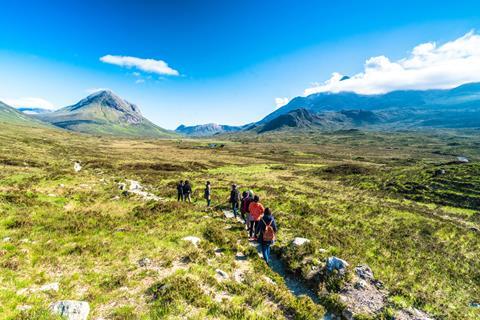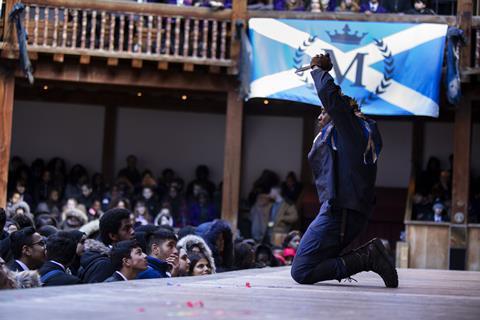Kate Erskine, head of Diversity Study Trips, shares her experiences of how the lives of students have been changed for the better because of school trips.

A headteacher of a comprehensive school in the South East told us about a child she had known since reception, describing him as ‘able’ but ‘unengaged’. He had an August birthday and had struggled to find a passion in school. In Year 6, the school took his class on a trip to the Globe Theatre to see a production of Macbeth, as they were reading it as a group.
The headteacher said “when the play finished we ate lunch along the Southbank, and this young boy had completely transformed since the train journey into London. He couldn’t stop talking about the actors and the play.”
He told her that he wanted to become an actor when he grew up and went home to ask his mother for tickets back to the Globe for his birthday. He then joined an external drama group, and the headteacher saw him perform in a production of Romeo and Juliet five years later. One school trip changed the trajectory of that young boy’s life, encouraging him to be present in literacy lessons, to enjoy Shakespeare and to pursue a new passion. Many teachers across the country could recall a child with a story like him, inspired by being in new surroundings and thereafter being more engaged in lessons.

Study trips do not just encourage a love for learning but can also help students make friends with peers that they might not usually see in lessons. Helping young people to develop communication and people skills is incredibly important in the age of social media, whether it’s interaction with the public or each other.
A head of year shared with us that on a residential trip, teachers took hold of students’ phones, and she called it a ‘game-changer’ to encourage social interaction. The combination of the lack of access to social media, and the change in the learning environment enables students to get involved in a different way to the classroom. Being able to see the curriculum in context, be it an English literature trip to Jane Austen’s house or a history trip to Berlin, is imperative to remind students why learning is important.
School trips can also build bonds between teachers, as they have the opportunity to get to know each other in a different setting.
Of course, it’s not all scheduled itineraries on a study trip. One of the most important aspects of educational trips is the opportunity for cultural exploration. Diversity Study Trips regularly takes students to New York with an LGBTQ+ itinerary, to show off one of the most vibrant and inclusive cities in the world. Such a trip can both help students to feel at home overseas to learn about the shared history of a community that they are a part of and promote tolerance and openness in other students who have less of an awareness of LGBTQ+ culture.
Advice on making trips accessible to all
Unfortunately, a consequence of the pandemic and the cost-of-living crisis is the fall in the number of young people able to go on school trips but there are things to do to help. By forward planning two years instead of one, parents could pay off a trip for less per month, widening accessibility of possible trips. That way, even long-haul trips can become a reality and a life-changing experience for students.

As most trips in secondary schools are centred around core GCSE subjects, it is vital to ensure that it is not just the most enthusiastic students attending the trips, but also those who perhaps are less engaged in lessons, to reinforce the value of the learning. Using a specialist travel management company can help schools to find the best deals while maintaining a high quality educational trip. Using a travel management company can help to provide fresh ideas for locations that might have been running for a long time, to keep students engaged and to ensure they see the most relevant sights for their subject.
A head of year shared with us that on a residential trip, teachers took hold of students’ phones, and she called it a ‘game-changer’ to encourage social interaction.
Another solution to ensure that as many students as possible can be involved in study trips is a travel destination swap, where one far-flung destination is replaced with an equally relevant location closer to home. For example, a geography trip to the West Coast of the USA can be substituted for a trip to Iceland for 70% less money to provide a trip that is just as relevant to learning about plate tectonics.
What trips can mean for teachers
An educational trip can help teachers to understand the needs of a pupil in the classroom. If misbehaviour within the classroom is rooted in an inability to understand content, a trip can highlight an underlying passion for a particular subject.
Curriculum-led trips are incredible for students who struggle with traditional learning methods, as lessons can be placed into context and a more hands-on approach can be taken. School trips can also build bonds between teachers, as they have the opportunity to get to know each other in a different setting. On top of this, teachers can build relationships with students through the shared experience of exploring a new place.
Educational trips create a space in which students can find themselves and feel part of something bigger with like-minded people. Any way that cultural capital can be increased - whether that involves a trip to Tokyo or to Manchester - is a step in the right direction to change a young person’s life for the better.
Diversity Study Trips offer schools a range of itineraries across the world which aim to inspire pupils for later life. More information is available at: www.diversitystudytrips.co.uk.










